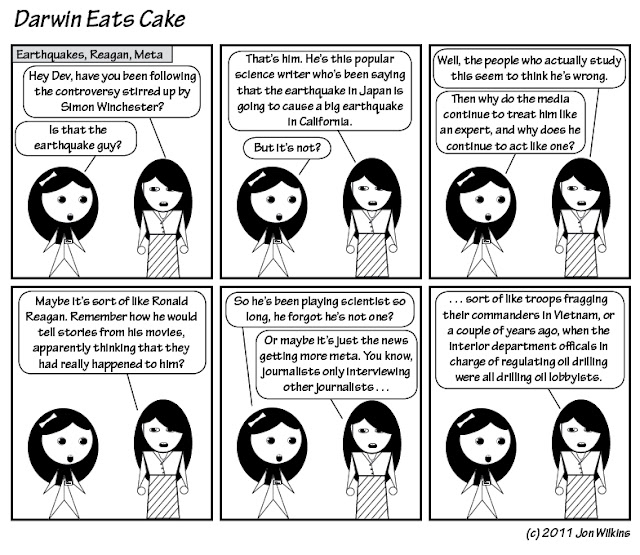So, over the past two and a half years, a lot of opinions have been aired on the arcane financial instruments that were created, packaged, repackaged, sold, and leveraged by Wall Street Czars and Moguls. Some people view this activity as a natural extension of free-market capitalism, just as some people undoubtedly view eating children as a good source of protein. Other people view this self-referential and self-reinforcing “fake economy” as a financial cancer that nearly collapsed the world economy, just as some people view cancer as a cancer that kills people.
I’m still making up my mind.
While we have heard a lot on the topic from economists and politicians, one person we have not heard from is the fictional ruler of the fictional country of Narnia. Unfortunately, there are no surviving records from which we can reconstruct what Caspian X (the ruler formerly known as Prince Caspian) on these matters. However, we can infer a little something from Caspian’s questioning Governor Gumpas of the Lone Islands about islands’ slave trade.
Just to set the scene, we’re in Book 3 here, The Voyage of the Dawn Treader. The Lone Islands are a part of the Kingdom of Narnia, but it has been about a hundred and fifty years since the last contact. So, the islands have been more or less self governing for a while. Caspian and the gang arrive to find a thriving slave trade, and Caspian insists that Gumpas abolish the practice.
The arguments that Gumpas puts forth to defend the slave trade could have come out of mouths of any one of the very serious people who have cautioned us against the chilling effect of imposing regulations, or curbing executive pay, or insisting upon transparency in how tax-supported funds are distributed among the elite.
“Necessary, unavoidable, a necessary part of the economic development of the islands, I assure you. Our present burst of prosperity depends on it.”
“Your Majesty’s tender years hardly make it possible that you should understand the economic problem involved. I have statistics, I have graphs, I have . . .”
“But that would be putting the clock back. Have you no idea of progress, or development?”
Caspian’s response could have come out of the mouths of any of the millions of people who lack the connections and – let’s say moral flexibility – to thrive in government:
In other words, you don’t need [slaves]. Tell me what purpose they serve except to put money into the pockets of such as [the slave trader] Pug? . . . . I do not see that it brings into the islands meat or bread or beer or wine or timber or cabbages or books or instruments of music or armour or anything else worth having. But whether or not it does, it must be stopped.
So, two action items here. First, for anyone in congress who was holding off on enacting meaningful financial reform until you were clear on Narnia’s position on the matter, you may now proceed.
Second, speaking now to the British Royal Family from the self-governing former colony of America, if you can tear yourself away from hanging out with pedophiles and dressing up like Nazis, maybe you could come over and visit Wall Street and kick a little Gumpass, if you know what I mean.
Now, I’m certain that some readers are going to feel that I’ve played a bit fast and loose with the analogy here. After all, is it really fair to compare contemporary American capitalism to the slave trade?
You make a good point, imaginary critic.
Here in America, we live in one of the richest nations in the history of the world. The top one percent of the population receive only 25% of the income and control only 40% of the wealth. Government policies meet needs of corporations and the extremely wealthy with increasing efficiency. We send the children of the least wealthy members of our society off to fight against oppressive regimes that do not cater to our geopolitical dominance, while we send the children of the wealthiest members of our society off to curry favor with equally oppressive regimes that provide us with energy resources and places to dock our warships. Corporations have been granted rights of unlimited expression and privacy, while individual whistleblowers are confined and tortured. Rules of equal treatment in the court system have been abandoned for those subsets of humanity deemed too dangerous to be given a fair trial.
You’re right. It is absolutely nothing at all like slavery.
–––––––––––––––––––––––––––––––––––––––––––––––––––––––––––––––
Update: I’ve changed the title, and modified the text a bit to clarify that King Caspian X is the same person as Prince Caspian, which is probably obvious only if you are a huge C. S. Lewis fan.


